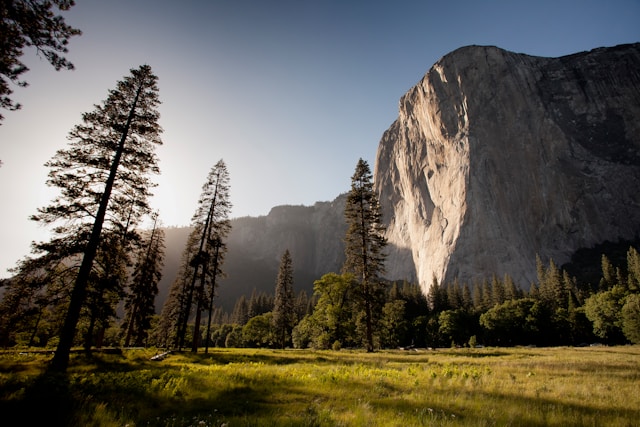In our modern world, characterized by relentless pace and constant connectivity, finding moments of peace and mental clarity has become increasingly challenging. National parks provide an essential escape from the pressures of daily life, offering a natural remedy for stress and anxiety. The benefits of immersing oneself in these pristine environments are not only anecdotal but backed by scientific research.
The Science Behind Nature’s Therapeutic Effects
Spending time in nature, especially in national parks, has been shown to significantly reduce levels of cortisol, the hormone responsible for stress. The tranquil settings of these parks, with their lush forests, serene lakes, and expansive landscapes, allow the mind and body to relax, promoting a sense of peace and well-being. These natural spaces act as a counterbalance to the noise, pollution, and sensory overload often found in urban environments.
Moreover, nature has a remarkable ability to lift our spirits. Activities such as hiking, birdwatching, or simply sitting by a waterfall can lead to increased levels of serotonin and endorphins—chemicals in the brain that enhance mood and create a feeling of happiness. These experiences foster mindfulness, encouraging individuals to be present in the moment and to let go of the worries and distractions that typically dominate their thoughts.
Long-Term Benefits of Regular Nature Exposure
Beyond the immediate benefits of stress relief and mood enhancement, regular visits to national parks can have long-term positive effects on mental health. Engaging with nature helps improve cognitive function, enhance emotional resilience, and reduce the risk of developing mental health disorders. The consistent exposure to natural environments reinforces a state of mental calm and balance, which is essential for overall well-being.
For those who cannot frequently visit national parks, other forms of recreation can also contribute to mental wellness. Engaging in activities that offer relaxation and enjoyment, such as online gaming, can complement the benefits of nature. Websites like playfortuneforfun.com provide entertainment options that, when enjoyed responsibly, can help reduce stress and provide a balanced approach to relaxation. While digital activities are not a substitute for time spent in nature, they can offer an additional avenue for stress relief, especially when outdoor experiences are limited.
The Role of National Parks in Modern Society
National parks offer a powerful way to disconnect from the digital world and reconnect with nature. The natural settings provide an opportunity to immerse oneself in activities that promote physical and mental well-being. Hiking, for example, is a popular activity in national parks that combines physical exercise with the beauty of the surroundings, resulting in improved cardiovascular health and enhanced mood. The diverse landscapes of national parks also encourage exploration and discovery, which can stimulate the mind and reduce feelings of monotony or boredom often associated with routine.
Social and Educational Benefits of National Parks
Another significant benefit of national parks is the opportunity for social interaction. Visiting these parks with family or friends can strengthen relationships and create shared memories that contribute to emotional well-being. The communal experience of appreciating nature together fosters a sense of connection, not only with each other but also with the environment. This connection to nature and to others can be incredibly grounding and can help to counteract feelings of isolation or loneliness.
Furthermore, national parks play a critical role in education and conservation, teaching visitors about the importance of preserving natural habitats and ecosystems. By engaging with these environments, individuals become more aware of the need to protect and conserve our natural resources. This awareness can translate into positive environmental behaviors and a deeper understanding of the interconnectedness of all living things.
Conservation Efforts and Mental Health
As urban areas continue to expand, the importance of preserving and utilizing national parks becomes increasingly apparent. These natural sanctuaries serve as a refuge from the hustle and bustle of city life, offering a space where individuals can unplug, reconnect with nature, and regain their mental equilibrium. The act of simply being in nature—away from screens and the constant demands of work and social media—allows the brain to rest and recover from the strains of modern life.
Physical activities in national parks, such as hiking, cycling, and even casual walking, are not only beneficial for physical health but also play a crucial role in mental well-being. The dynamic and diverse environments of national parks provide a refreshing alternative to the often monotonous settings of gyms and indoor exercise spaces. The combination of physical exertion, fresh air, and the beauty of nature works synergistically to improve both mental and physical health.
However, the mental health benefits of national parks extend beyond those who physically visit them. Conservation efforts ensure that these spaces remain protected and accessible for future generations, safeguarding the natural beauty and the psychological benefits they provide. The preservation of national parks is not only an environmental concern but also a matter of public health.
Content creators and professionals from various fields are increasingly recognizing the importance of these natural spaces. For example, Victor Bagan, a content manager, highlights the role that media and content play in raising awareness about the importance of conservation. By promoting the value of natural environments and encouraging people to engage with and appreciate them, individuals like Bagan contribute to the broader effort to protect these vital spaces. This not only preserves biodiversity but also ensures that the mental health benefits of nature are available for generations to come.
Conclusion
In conclusion, national parks offer far more than just scenic beauty; they are a critical resource for mental health. Whether through direct experiences in these parks or through supporting conservation efforts, it is essential to recognize and protect the invaluable mental health benefits that these natural environments provide. As we continue to navigate the challenges of modern life, the role of national parks in promoting mental well-being will only become more significant.

